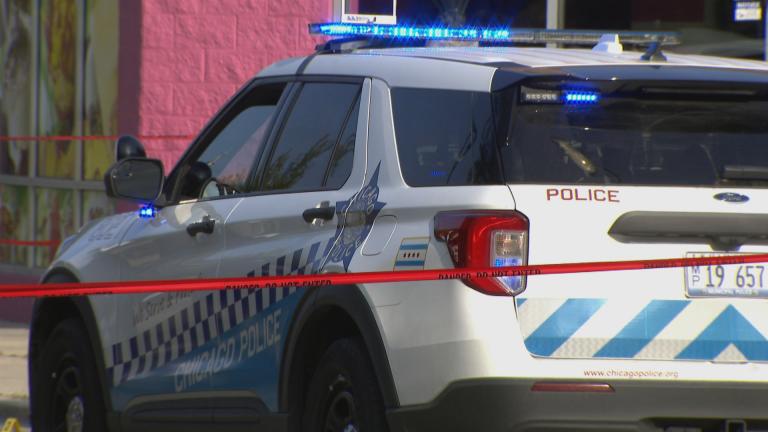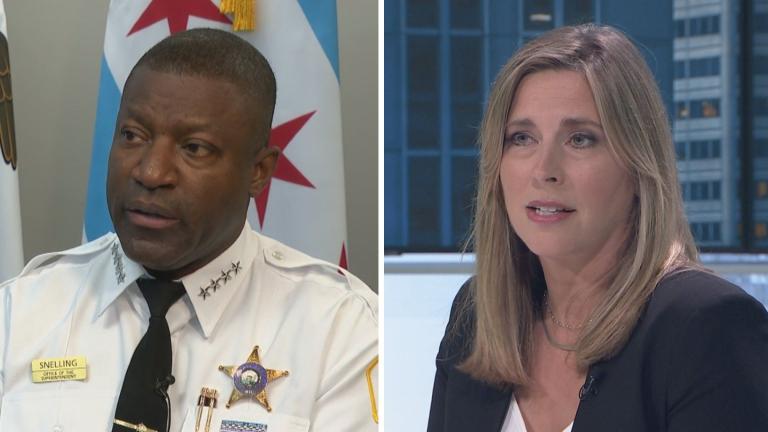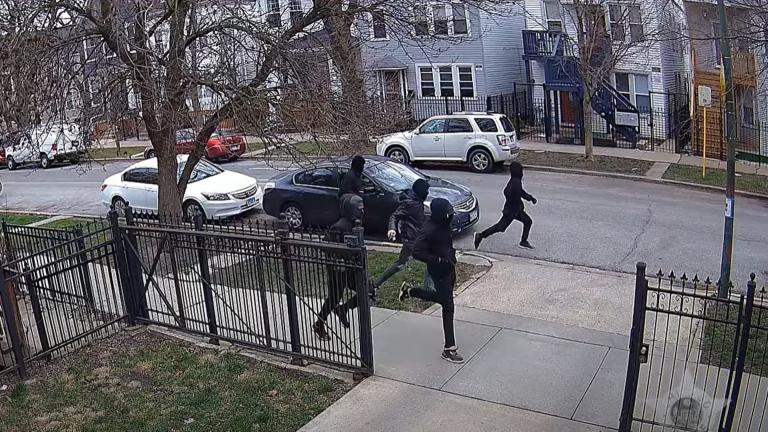This story is part of Policing: A “Chicago Tonight” Special on the anniversary of George Floyd’s murder.
George Floyd’s murder sharpened the focus on the use of force by police in Chicago and across the nation.
In Chicago, fatal shootings, revelations of botched raids and policing tactics at protests have all been the subject of criticism, calls for reform and even defunding.
But many in law enforcement say they are given too few resources and too many restrictions to do what they believe is a difficult and dangerous job.
Marc Buslik, a retired 39-year veteran of the Chicago Police Department and adjunct faculty teaching criminality, law and justice at the University of Illinois at Chicago, says his teaching is within a framework he calls “police legitimacy.”
“Basically, the public must trust that the police are doing the right things the right ways. How does this happen? What are the right things? What are the right ways? Well, these are determined by a collaborative effort to identify what the concerns are of the community and how best to address them,” Buslik says.
Buslik says that judging police performance thus depends on what the community’s values are.
“If they consider crime fighting to be important, then reported crime should be the metric used to judge the efficacy of their police department. If accountability is the hot button issue, then the community should be comfortable in the knowledge that the complaint and disciplinary processes are transparent, accessible, legal, and suitable to prevent future misconduct. If positive community interaction is key, then the police should be evaluated on how well all interactions take place, not just those during ‘warm and fuzzy’ events,” Buslik says.
Waldemar Cruz, retired Cicero police sergeant and president of the Puerto Rican Police Association, says he would like to see more time spent on training and mentorship with young officers.
“How about training us properly? Make officers better trained and take your time with them, and then when you get them on the street we’re better able to handle those situations. Suburban departments get them on the street in three months. We have to put money into explaining the job, the career, showing different aspects, it’s something that we’ve lost over the years,” Cruz says.
Cruz also believes it’s important to recruit officers from the neighborhoods they serve.
“I grew up in Humboldt Park, Logan Square – when I went to Cicero I already knew it was a similar environment with the same problems. So I already had that experience, but if you don’t have that, you’re lost because realistically, the conversations you have are not the kind of conversations they might expect,” Cruz says.
Peter Garza is a retired criminal investigator for the Cook County state’s attorney’s office and former Cook County deputy sheriff. Garza says he believes that since he worked in the state’s attorney’s office, the focus has shifted too far from helping the victim and instead concerns itself with “the poor criminal.”
“The bad guy has somehow become the good guy, the victim, the martyr,” says Garza. “If you ask the people in those neighborhoods, they’ll say they need more police.”
Despite statistics that show Chicago has a higher number of police per capita than any American city besides Washington, D.C, Garza says the police are functioning under a deficit of resources.
“We are always operating at maybe 50%. Three aren’t enough cars, officers, radios. It speaks volumes when they just told police they can’t take any days off and have to work 12-hour shifts – that speaks volumes in how low they are in personnel.”








